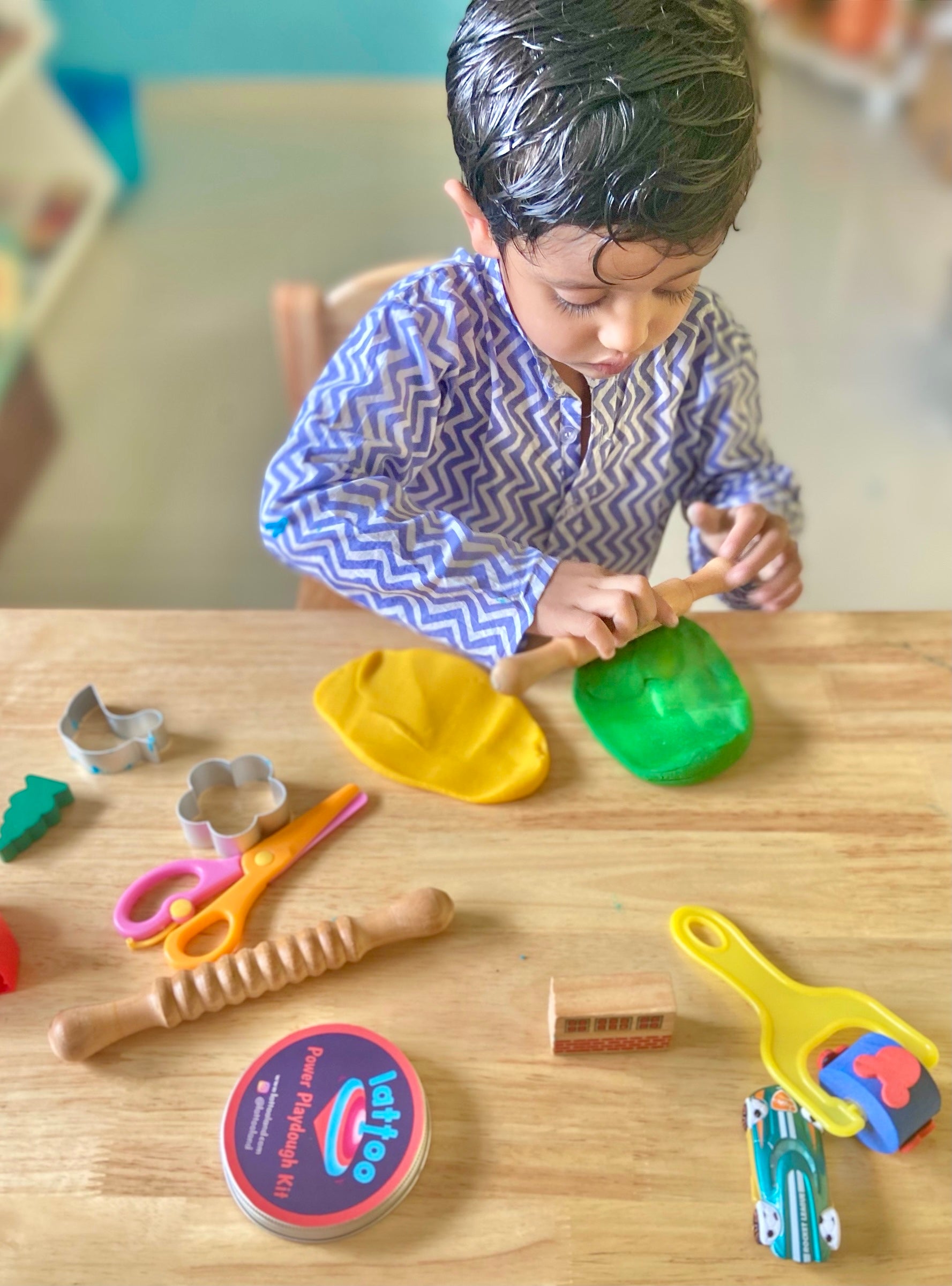All about sensory play
Sensory play, a cornerstone of child development, engages a child's senses—sight, touch, taste, smell, and hearing. In this article, we'll explore the profound impact of sensory play on child development, and how Lattooland's sensory products can not only enrich growth but also provide a calming effect, especially for children facing dysregulation.
What is Sensory Play?
Sensory play is a hands-on, immersive learning approach that engages a child's senses—sight, touch, taste, smell, and hearing—to promote holistic development. At its core, sensory play provides children with opportunities to explore the world around them through stimulating and interactive experiences. These activities often involve materials and environments that vary in texture, size, and sensory properties, encouraging children to investigate, experiment, and learn while having fun.
During sensory play, children use their senses to make observations, form connections, and build an understanding of their surroundings. By actively engaging their senses, kids develop essential skills while experiencing joy and discovering the world around them. Let's delve deeper into why sensory play is crucial for child development.
Importance of Sensory Play for Child Development
1. Cognitive Development: Building Neural Pathways
Sensory play plays a pivotal role in cognitive development. According to a study published in the "Journal of Applied Developmental Psychology" (2015), sensory experiences stimulate neural connections in a child's brain. This process enhances critical thinking, problem-solving, and creativity. When children engage with sensory materials like our taste-safe claydough or rainbow rice, they learn to manipulate, experiment, and explore. These activities stimulate brain development and help children develop a deeper understanding of the world around them.
2. Sensory Processing Skills: Nurturing Sensory Integration
Scientific literature, including research in the "Journal of Autism and Developmental Disorders" (2014), emphasizes the significance of sensory play in refining sensory processing skills. Sensory play enhances sensory processing skills, which are vital for a child's ability to respond to and interpret sensory information. By immersing themselves in sensory activities, children become more attuned to their senses, helping them develop self-regulation and adaptability. This is especially beneficial for children with sensory processing disorders.
3. Language and Communication: A Vocabulary Builder
Sensory play often involves interaction and communication with others. Research findings from the "Journal of Speech, Language, and Hearing Research" (2017) highlight the role of sensory play in language and communication development. Engaging in activities that involve describing textures (like rangoli materials, rice, clay dough etc.) or naming colors and shapes (such as rainbow rice) or pretend play enriches vocabulary and promotes social interaction.
4. Emotional and Social Development: A Safe Exploration Zone
Sensory play provides a structured environment for emotional and social development. According to a study in the "Journal of Experimental Child Psychology" (2013), children use sensory play to explore and express their emotions safely in a controlled environment. This can be particularly helpful for kids dealing with anxiety or stress. Moreover, sensory play often involves group activities, promoting social skills such as sharing, taking turns, and collaboration. (Reference: "Journal of Research in Special Educational Needs" (2018))
5. Fine and Gross Motor Skills: Precision in Play
Engaging in sensory play activities like molding clay dough or pouring rainbow rice or creating rangoli encourages the development of fine and gross motor skills. These activities require hand-eye coordination, muscle control, and precision, which are essential for writing and other academic and physical achievements.
In addition to promoting cognitive, emotional, and physical development, sensory products have a remarkable calming effect, especially for children facing dysregulation. Sensory play offers a safe space for kids to regulate their emotions and sensory input.
-
Taste-Safe Claydough: Our claydough's tactile qualities provide a soothing sensory experience. Children can knead, shape, and manipulate it to find comfort and regulate their emotions.
-
Rainbow Rice: The rhythmic pouring and scooping of rainbow rice create a calming, repetitive motion that can help children relax and focus their attention.
-
Pasta Play: Engaging in creative pasta play allows children to channel their energy into artistic expression, providing an outlet for pent-up emotions.
-
Rangoli Materials: The vibrant colors and textures of rangoli materials offer sensory engagement that can be particularly therapeutic for children facing dysregulation.
Nurturing Development with Lattooland's Sensory Products
Sensory play is a potent developmental tool that not only fosters cognitive, emotional, and physical growth but also provides a calming effect, especially for children facing dysregulation. At Lattooland, we're dedicated to offering sensory products that enrich the sensory play experience, promoting both growth and tranquility in children. Explore the world of sensory play with Lattooland, and witness your child thrive and find calmness in every aspect of their development.











